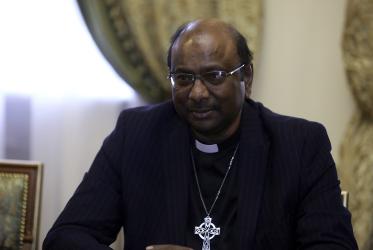Displaying 1 - 20 of 41
22 September 2023
Ecumenical delegation visits Armenia
19 September 2023
Chateau de Bossey thriving as lives are transformed
08 September 2023
Christ’s Love (Re)moves Borders – GETI 2022 in images
13 September 2022


















